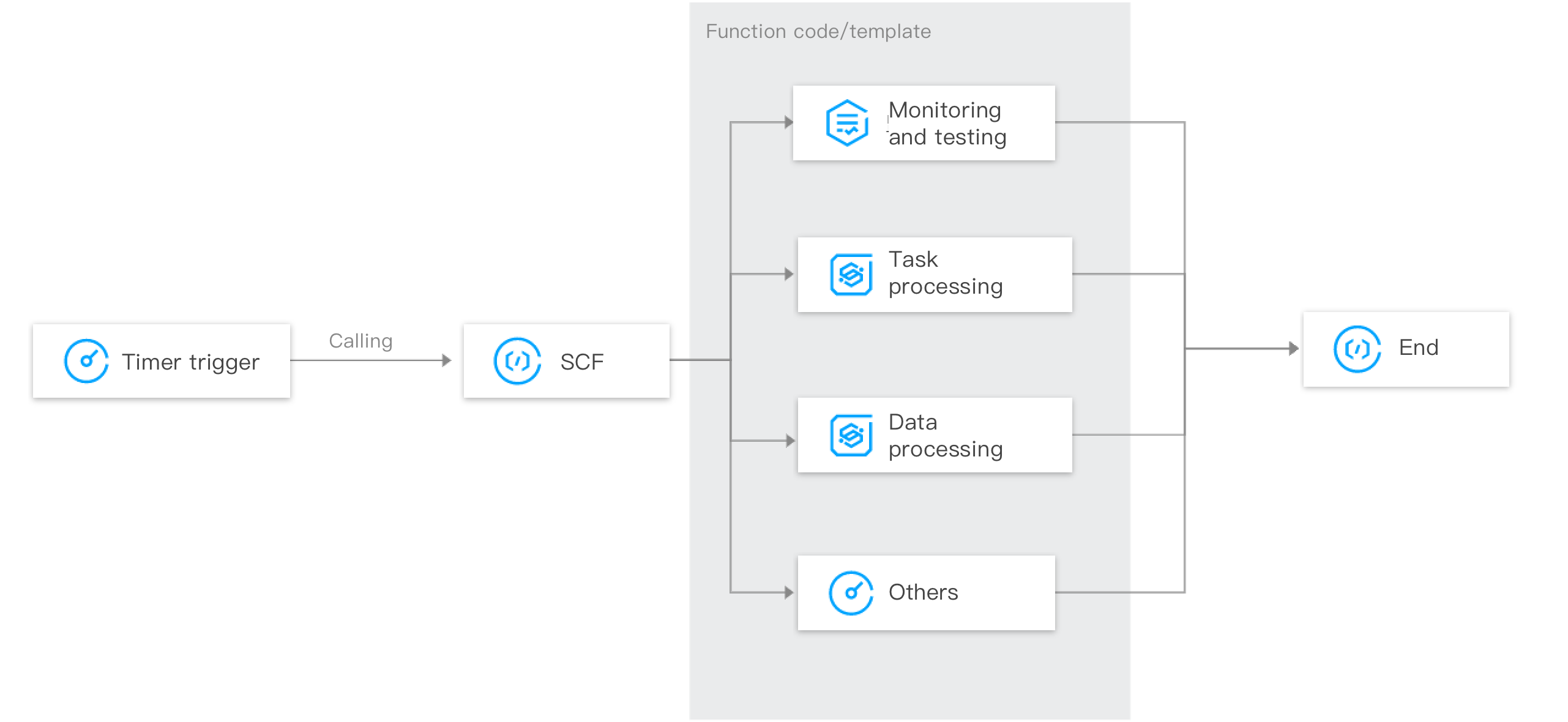定时任务处理概述
最后更新时间:2024-12-02 21:14:29
通过云函数定时触发器,您可以快速创建定时任务,无需提前购买计算资源。云函数定时触发器依赖于 Serverless 强大的弹性扩缩容能力,可提供稳定快捷的定时任务处理能力。
与其他事件触发器不同,定时触发器 可以使用定时的时间驱动函数执行。设置 Cron 表达式即可快速使用,无需依赖外部调用。对自动监控拨测告警、自动任务执行、数据归档、数据清理、数据备份等典型定时任务场景有天然优势。相关流程如下图所示:


使用函数处理优势
提供定时任务全生命周期,帮助用户快速构建定时触发器场景。
全托管任务,按照标准 Cron 表达式周期进行触发执行,自动重试。
持续增加内置函数模板,降低主流需求下的定时任务开发成本。
基于云函数提供计算能力,拥有弹性伸缩、免运维、按需付费等特性。
多场景函数处理实践
已有典型场景模版及具体说明如下表所示:
函数处理场景 | 描述说明 |
高可用定时拨测 | 使用云函数实现高可用定时拨测能力。 |
通过 puppeteer 实现定时对页面内容进行采集,数据存储等任务执行。 | |
数据定时归档备份 | 通过云函数实现数据库定时备份至 COS 能力。 |
注意:
文档反馈

